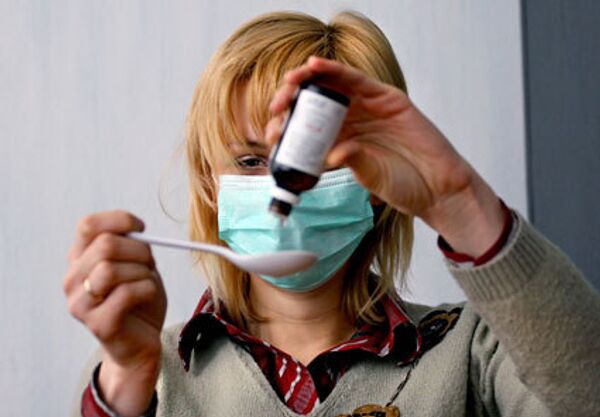RIA Novosti interviews TAMARA LOBOVA, Ph.D. (Medicine), Academic Secretary of the North-West Department of the Russian Academy of Medical Sciences
Question: Is the A/H1N1 flu dangerous?
Answer: This flu is primarily dangerous because the majority of people are not immune to the new virus. Older people may have some immunity, because a similar strain had previously affected the human population. Clinically, this disease is more serious that other types of flu. More people die from it and there are more complications. But this flu has not affected Russia that much.
Q: Are you saying that there are no bad cases in Russia yet?
A: In most cases, the disease caused by this new pandemic virus is relatively mild, although there are complications, such as pneumonia and bronchitis.
Q: Early this week Dmitry Lvov reported the first death. Is this true?
A: I cannot comment on this situation because he first spoke about this case, but then the Ministry of Health denied it. As of today, we have not received any information about this case having been officially registered in Russia.
Q: When will this flu reach its peak? Or has the peak already come and gone?
A: No, the peak has not passed and is yet to come. Generally, there is a seasonal increase in disease rates and virus infections. This pandemic flu is not the only one.
Q: Do you think early diagnosis of this flu is done well in Russia? Many people say that they arrive in Russia, fill out some form, and that’s it.
A: I’m afraid I cannot answer this question. Applied health workers, including us, are working on this.
Q: So, you cannot yet say if there is a clear-cut plan?
A: There is a clear-cut plan for examining patients who are already sick. They remain home, call for a doctor, and receive a diagnosis. Many of those who feel sick simply come to our institute and ask for an examination. What can we do? We cannot accommodate all of them, both the sick and the healthy. There are also hypochondriacs with no symptoms but who simply want to make sure they don’t have it. We cannot take them all in, because this examination is quite expensive and labor-intensive.
Q: But when will it reach its peak?
A: Probably in December and January, just as with the usual seasonal flu. The peak usually comes after New Year’s. I’m afraid to predict when the increase will come, but we think this is most likely to happen in that timeframe.
Q: What other preventive measures can Russia take to contain this disease?
A: We are now testing a vaccine. This is our main hope to prevent the disease. If the test shows that the vaccine is harmless and immunogenic, mass vaccination will start in November.
Q: So, coming back to the situation in Russia, should we sound the alarm, or is everything still under control, even if we should be vigilant?
A: On the one hand, we cannot be complacent or tell people to relax, but, on the other hand, inciting panic is also counterproductive. The situation is under control. Medical institutions will organize mass-scale vaccination, and provide medical services. They will make sure there are enough beds in hospitals. We are now working on the vaccine. Our goal is to develop a vaccine in line with protocols and standards, and begin producing it on a large scale.
Q: You said it will be ready some time in November?
A: Yes, we hope to achieve results by November. To draw any conclusions, we have to assess the results of vaccination, and compare the condition of the volunteers before and after it. There are a host of parameters that must undergo serious scientific analysis and comply with certain vaccine standards. When we have done all this, we will announce that the vaccine is ready, that it is harmless and effective, and that it will protect us against the new virus.

